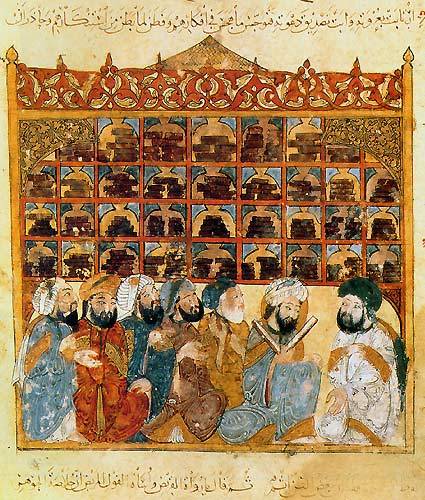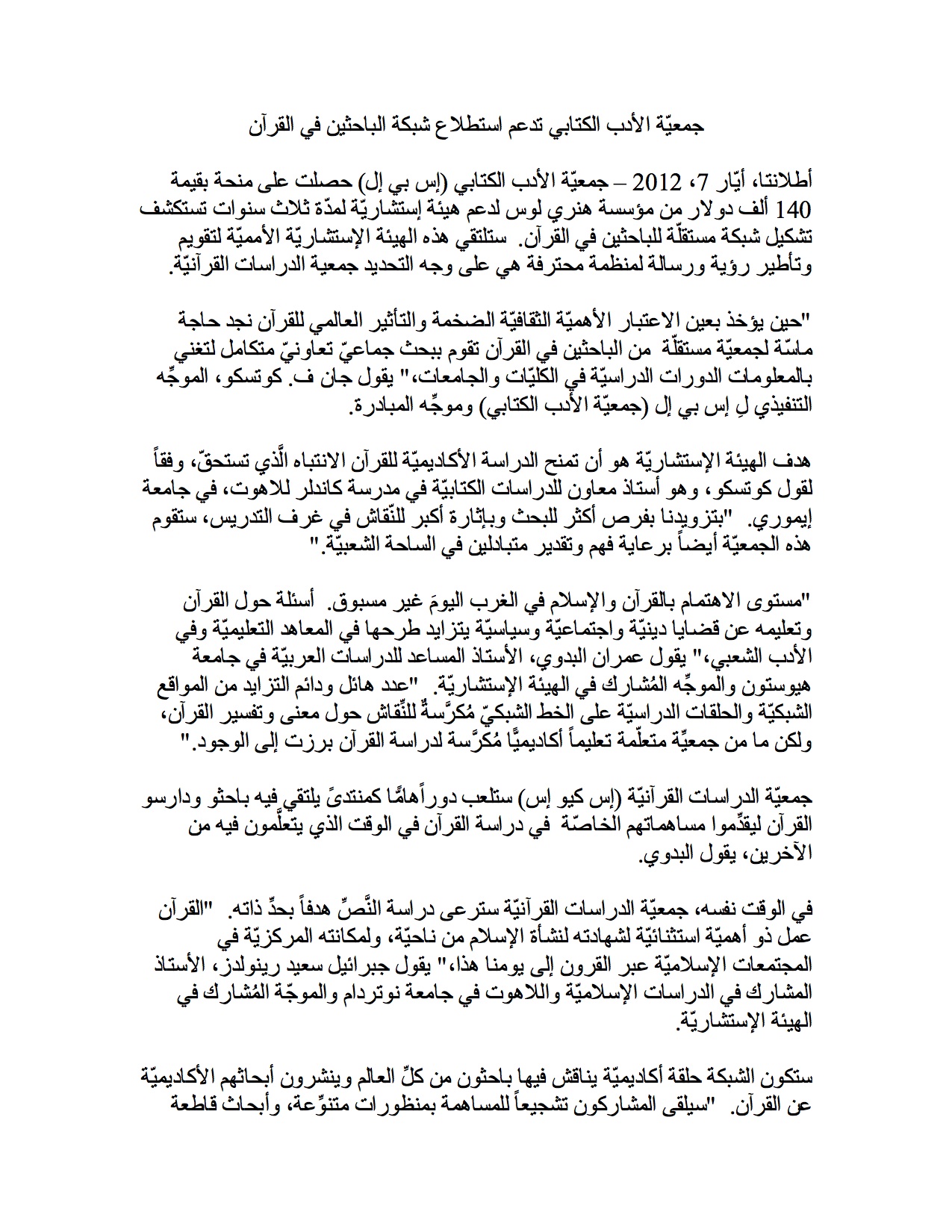A Letter of Thanks to IQSA Members
Dear IQSA members and friends,
I hope this message reaches you well, and that you found our time together in San Diego, both enlightening as well as enjoyable. Like many of you, I had the pleasure of meeting old friends and making new ones. I speak for myself, council and all IQSA officers when I say that we are quite pleased with how the conference went. Our sessions were well attended, and the papers were engaging and thought provoking. Our current membership numbers over 450 from all around the world, and we had the pleasure of having over one hundred of them represented during the Friday sessions, especially the keynote lecture and reception. 50 people attended our first business meeting, at which prof. Farid Esack was unanimously voted president elect for 2015.
We are, furthermore, heartened and impressed by the enthusiasm for IQSA–both within North American and internationally. Participants and audience members came from around the globe, including Indonesia, Iran, Egypt, Saudi Arabia, South Africa, Australia, Europe and North America. This all bodes well for IQSA, not least because this is just our second annual meeting. The task of IQSA’s executive office is now to keep up with this growth and accommodate our members for many future meetings.
I am also happy to share with you that our success in San Diego played a significant role within the larger SBL / AAR conference, for the second year in a row. More on this and several other matters of business soon.
Please do not forget to tell your friends, colleagues and peers about us. IQSA members come from an incredibly diverse range of academic backgrounds, including Qur’anic Studies, Islamic Studies, Biblical Studies, Middle East Studies, textual studies, inter-religious studies, hermeneutics, studies on manuscripts or material culture, the hard sciences, and so on. There are numerous ways to stay connected with IQSA throughout the year, namely by:
* Becoming a member (http://membership.iqsaweb.org/Join.aspx)
* Subscribing to our blog (IQSAWEB.ORG)
* Joining the private IQSA Discussion Group
* Liking the “International Qur’anic Studies Association” on Facebook
* Following “@IQSAWEB” on Twitter
* Publishing with us!
(a) If you have an outstanding article or book length manuscript
(English, Arabic), please contact JIQSA@iqsaweb.org
See also our call for papers HERE
(https://iqsaweb.org/publications/call-for-papers-jiqsa/)
(b) If you have a minor project you would like to share over our blog
(any language), please contact vdegifis@wayne.edu
(As many as one thousand people may read your post in one
week)
Next, you may anticipate getting full access to the keynote paper by prof. Angelika Neuwirth and response by prof. Andrew Rippin. in December 2014. Soon after the New Year you should also receive news about Membership and Member Benefits for 2015. Current and past papers published by IQSA are available HERE (https://iqsaweb.org/publications/papers/) and program books are available HERE (https://iqsaweb.org/meetings/).
On behalf of us all, I wish to thank our 2014 acting president Andrew Rippin, 2015 president Reuven Firestone, and congratulate as well as thank our 2015 president elect Farid Esack. Also special thanks go to Nicolai Sinai, Gabriel Reynolds, John Kutsko, Irfana Hussain, Vanessa DeGifis, Ryann Craig, Hakaya Productions and our friends at both SBL and AAR. I very much look forward to our meetings next year in Yogyakarta Indonesia (Aug, 2015) and Atlanta, GA (Nov, 2015).
Finally, thank you all for making IQSA a success!
Sincerely,
Emran El-Badawi, Executive Director
© International Qur’anic Studies Association, 2013. All rights reserved.




